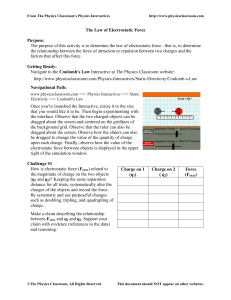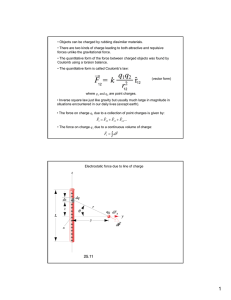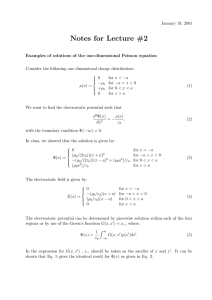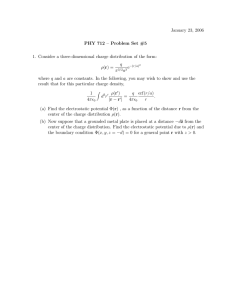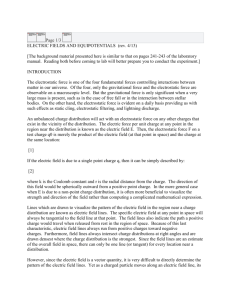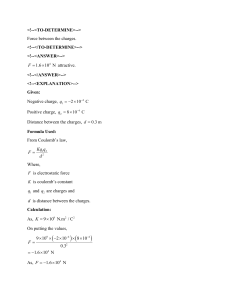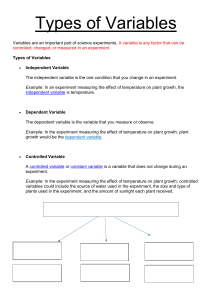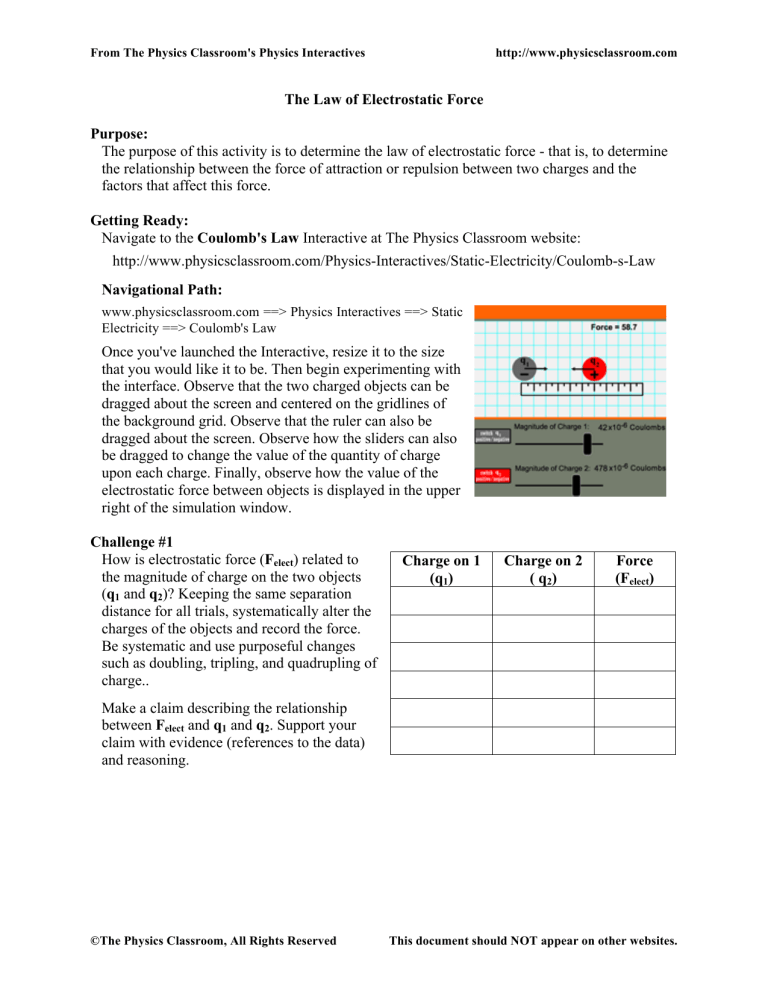
From The Physics Classroom's Physics Interactives http://www.physicsclassroom.com The Law of Electrostatic Force Purpose: The purpose of this activity is to determine the law of electrostatic force - that is, to determine the relationship between the force of attraction or repulsion between two charges and the factors that affect this force. Getting Ready: Navigate to the Coulomb's Law Interactive at The Physics Classroom website: http://www.physicsclassroom.com/Physics-Interactives/Static-Electricity/Coulomb-s-Law Navigational Path: www.physicsclassroom.com ==> Physics Interactives ==> Static Electricity ==> Coulomb's Law Once you've launched the Interactive, resize it to the size that you would like it to be. Then begin experimenting with the interface. Observe that the two charged objects can be dragged about the screen and centered on the gridlines of the background grid. Observe that the ruler can also be dragged about the screen. Observe how the sliders can also be dragged to change the value of the quantity of charge upon each charge. Finally, observe how the value of the electrostatic force between objects is displayed in the upper right of the simulation window. Challenge #1 How is electrostatic force (Felect) related to the magnitude of charge on the two objects (q1 and q2)? Keeping the same separation distance for all trials, systematically alter the charges of the objects and record the force. Be systematic and use purposeful changes such as doubling, tripling, and quadrupling of charge.. Charge on 1 (q1) Charge on 2 ( q2 ) Force (Felect) Make a claim describing the relationship between Felect and q1 and q2. Support your claim with evidence (references to the data) and reasoning. ©The Physics Classroom, All Rights Reserved This document should NOT appear on other websites. From The Physics Classroom's Physics Interactives http://www.physicsclassroom.com Challenge #2 How is the electrostatic force (Felect) related to the separation distance (d) the two charges? Keeping the magnitude of charge on both objects constant, conduct a systematic study to collect data relating separation distance to force. The separation distance is defined as the distance between the centers of the two objects; the best strategy involves centering the objects on a gridline and using distances that are a whole number of squares. Separation Distance (d) Force (Felect) Make a claim describing the relationship between Felect and d. Support your claim with evidence (references to the data) and reasoning. Conclusion: Suggest an equation relating Felect, q1, q2 and d of the form Felect = k•... where k is a proportionality constant (no need to determine its value). Place the three variables q1, q2 and d on the right side of the equation in a numerator or a denominator; use a power if needed. Your equation should be consistent with your claims made in Challenge #1 and Challenge #2. ©The Physics Classroom, All Rights Reserved This document should NOT appear on other websites.
